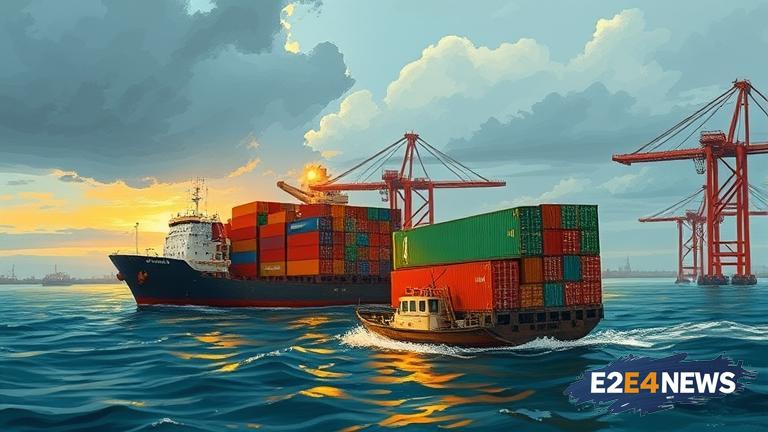The logistics sector in Kenya has become increasingly turbulent, with customs agents struggling to stay afloat amidst rising competition and stringent regulatory requirements. The industry, which is a critical component of the country’s economy, has been experiencing significant growth in recent years, driven by the expansion of international trade and the increasing demand for efficient and reliable logistics services. However, this growth has also attracted new players into the market, leading to increased competition and downward pressure on prices. Customs agents, who play a crucial role in facilitating the clearance of goods at ports of entry, are finding it difficult to adapt to the changing landscape. Many are struggling to maintain their market share, with some even being forced to exit the business altogether. The Kenya Revenue Authority (KRA) has introduced new regulations aimed at streamlining the clearance process and reducing the risk of tax evasion. While these regulations are intended to improve the efficiency and transparency of the logistics sector, they have also created new challenges for customs agents. For example, the introduction of the Integrated Customs Management System (ICMS) has required agents to invest in new technology and training, which can be costly and time-consuming. Furthermore, the KRA has increased its enforcement activities, with a focus on detecting and preventing tax evasion and other forms of non-compliance. This has led to an increase in audits and inspections, which can be disruptive and costly for customs agents. Despite these challenges, many customs agents remain optimistic about the future of the industry. They point to the growing demand for logistics services, driven by the expansion of international trade and the increasing importance of e-commerce. They also note that the Kenyan government has implemented a number of initiatives aimed at supporting the growth of the logistics sector, including the development of new infrastructure and the introduction of incentives for investors. However, to remain competitive, customs agents will need to invest in new technology and training, and to develop innovative solutions to the challenges facing the industry. This may involve forming partnerships with other logistics providers, or investing in new services such as warehousing and freight forwarding. The use of technology, such as blockchain and artificial intelligence, may also play a critical role in the future of the logistics sector. By leveraging these technologies, customs agents may be able to improve the efficiency and transparency of their services, and to reduce the risk of errors and non-compliance. In addition, the development of new infrastructure, such as the Lamu Port-South Sudan-Ethiopia Transport Corridor, is expected to increase the demand for logistics services in the region. The Kenyan government has also introduced a number of initiatives aimed at supporting the growth of the logistics sector, including the development of a national logistics policy and the establishment of a logistics hub at the Jomo Kenyatta International Airport. Overall, while the logistics sector in Kenya is facing significant challenges, there are also many opportunities for growth and development. By investing in new technology and training, and by developing innovative solutions to the challenges facing the industry, customs agents can remain competitive and thrive in this turbulent market. The future of the logistics sector in Kenya is uncertain, but one thing is clear: customs agents will need to be adaptable and innovative to succeed. The industry is expected to continue growing, driven by the expansion of international trade and the increasing demand for efficient and reliable logistics services. As the sector continues to evolve, customs agents will need to stay ahead of the curve, investing in new technology and training, and developing innovative solutions to the challenges facing the industry. This will require significant investment and effort, but the potential rewards are substantial. By leveraging the opportunities presented by the growth of the logistics sector, customs agents can build successful and sustainable businesses, and contribute to the development of the Kenyan economy. The logistics sector is a critical component of the Kenyan economy, and its growth and development will have a significant impact on the country’s future prosperity. As the industry continues to evolve, it is essential that customs agents, policymakers, and other stakeholders work together to address the challenges facing the sector, and to capitalize on the opportunities presented by its growth.
